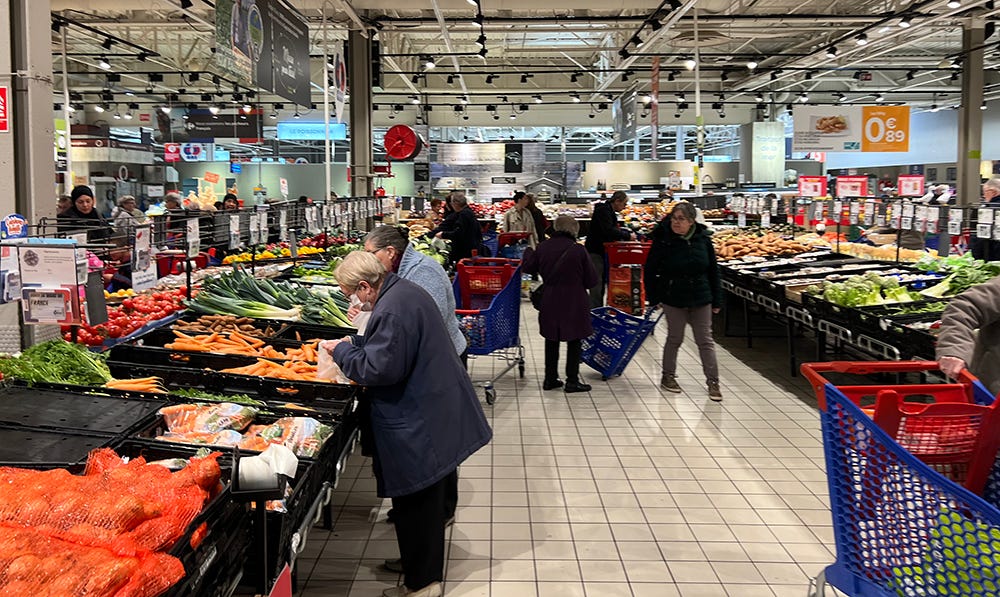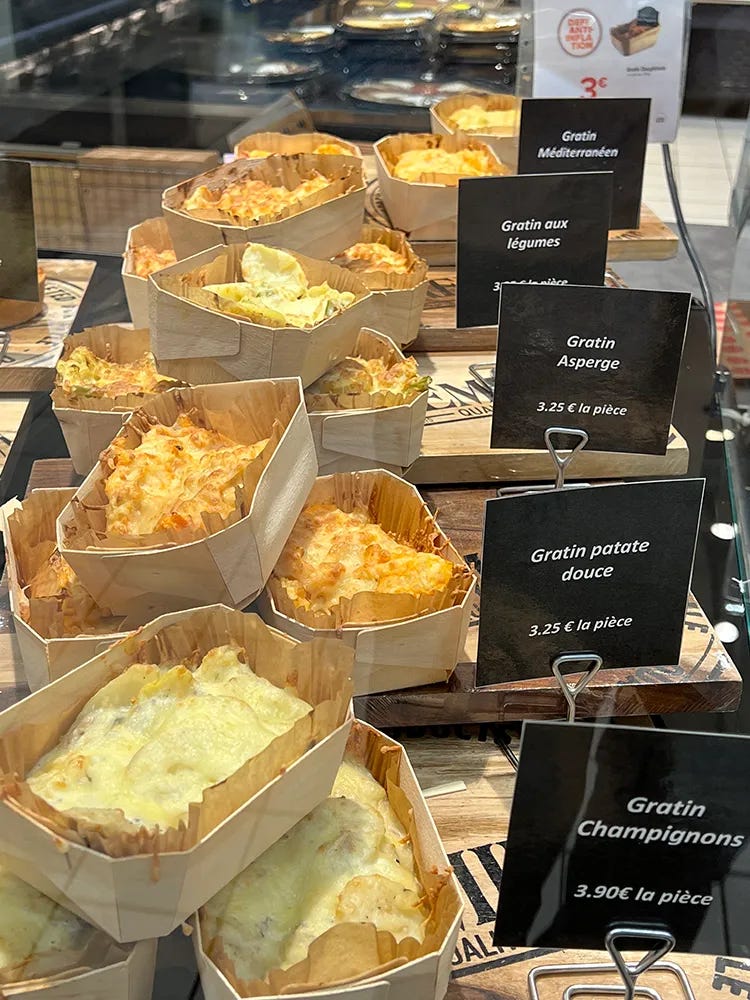The Absolute Joy of Perusing a French Grocery Store
A love letter to Real Food, as told in photos
Want to really learn about a country or town you’re visiting? Go grocery shopping! Hold off on the museums and the guided tours, and head straight for the local supermarché or open-air market. For those of us who treat grocery shopping like a sport, this isn’t just an entertainment — it’s a philosophy. Because food isn’t just sustenance. It’s culture, identity, and a direct measure of quality of life.
The Grocery Store as a Cultural Barometer
After years of wandering the aisles of bustling open-air markets and supermarchés throughout France, I’ve learned a truism: People should feel compelled to cook — not out of necessity, but out of inspiration. That inspiration can come from beautiful ingredients, a well-designed kitchen, or the joy of sharing a meal with good friends. But more often than not, it begins in the grocery store.
Unfortunately, here in the United States, grocery stores often fall short of that promise. In my opinion they're not places of discovery or delight, but places of frustration and, most disappointingly, social stratification.
A Tale of Two Garlic Bulbs
Take a recent example here in my hometown of Chicago: A simple quest for garlic turned into a mini odyssey. The first store had a meager offering—four or five sad, shriveled bulbs. The second? Only organic garlic, and at double the price.
What should be a basic, affordable pantry staple suddenly felt like a luxury item. And it begs the question: when basic ingredients become markers of class or wealth, are we not inching closer to something like a caste system?
Vive la France: A Grocery Store Utopia
In France, fresh, high-quality food is a given—not a privilege. Whether you're meandering through a village market or pushing a cart through a suburban Carrefour or Leclerc, abundance and accessibility define the experience.
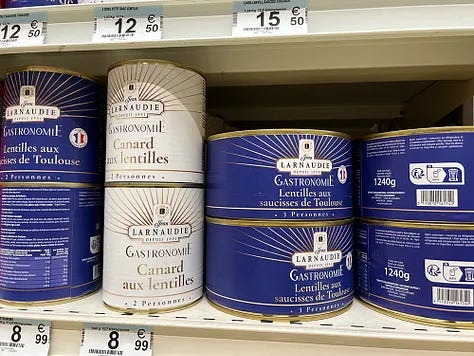
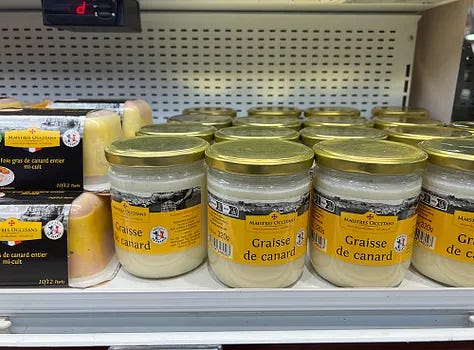
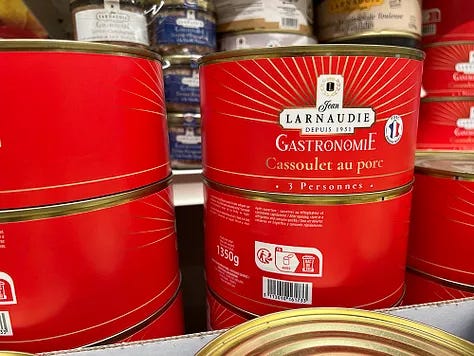
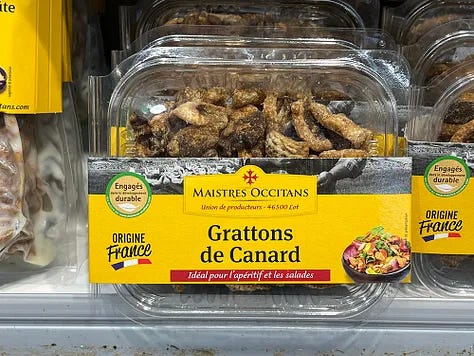
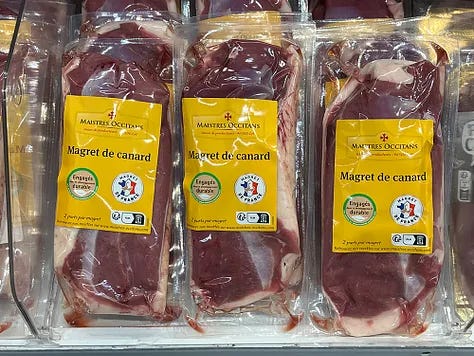
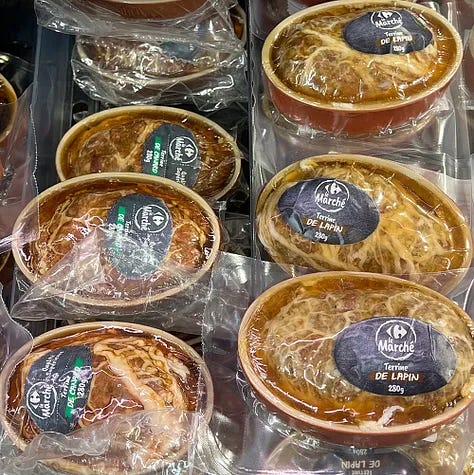
Produce in French supermarkets is nothing short of legendary, and not just for its range or beauty. Each item is labeled with its region or country of origin, and often includes harvest dates.
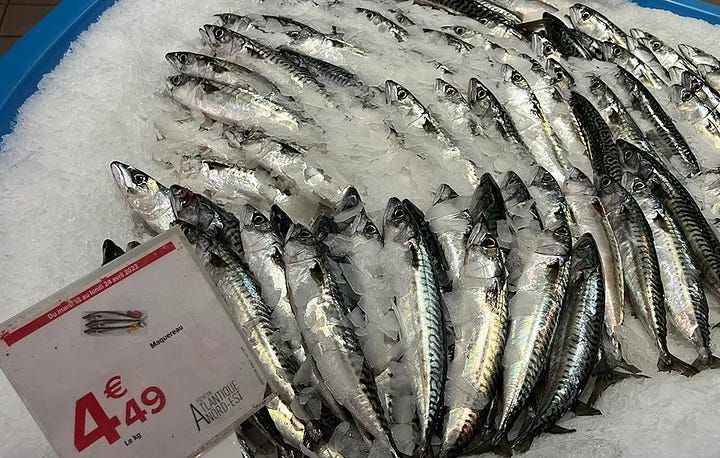
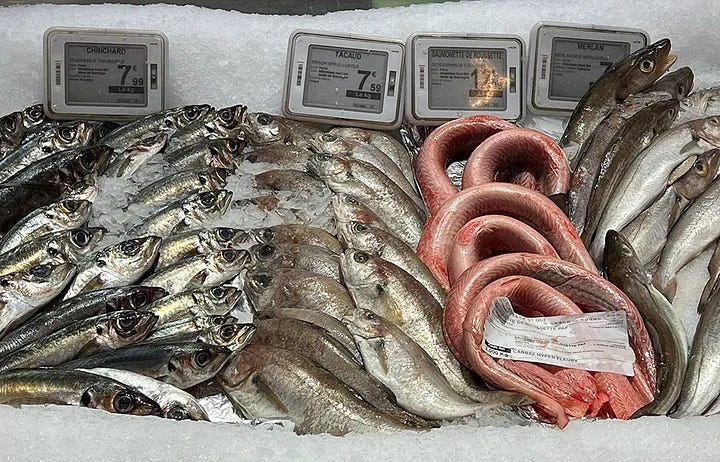
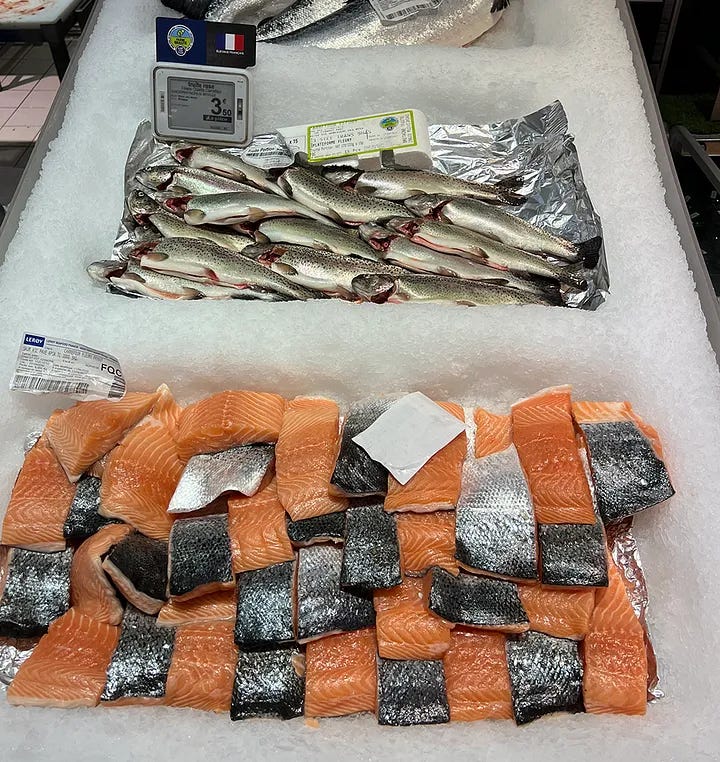
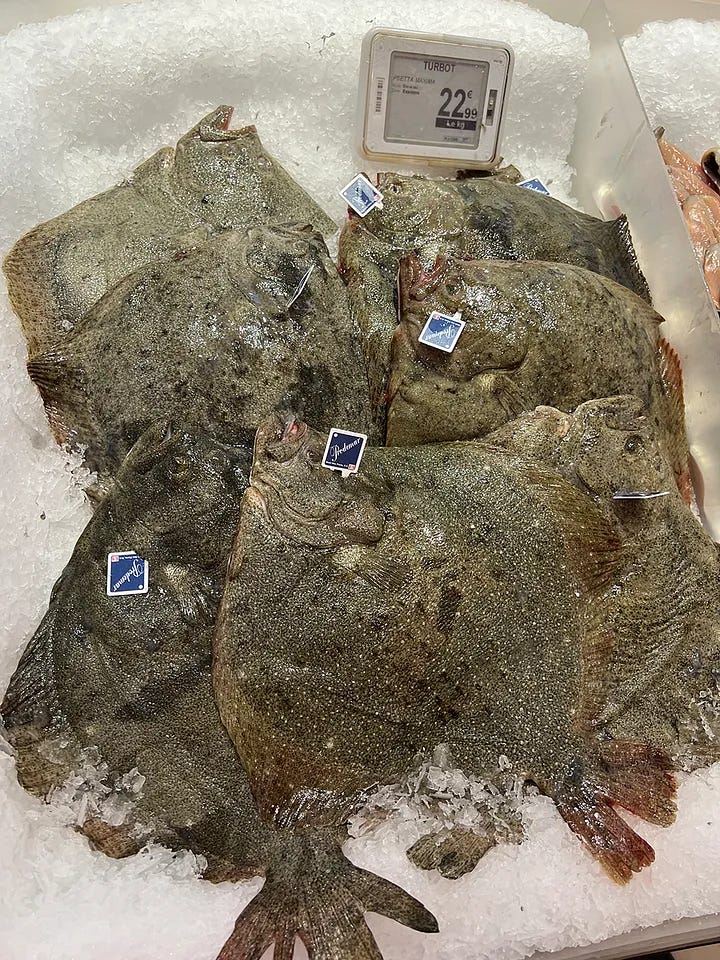
Even beyond produce, the selection is remarkable. Fish—both fresh and canned—line the aisles in impressive variety. Prepared meals are both inspiring and affordable. The bread aisle alone can bring a tear to your eye, and don’t get us started on the wine: plentiful, drinkable, and shockingly well-priced.
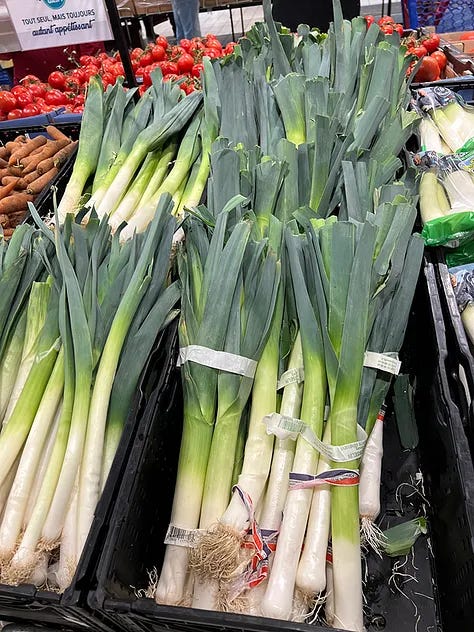
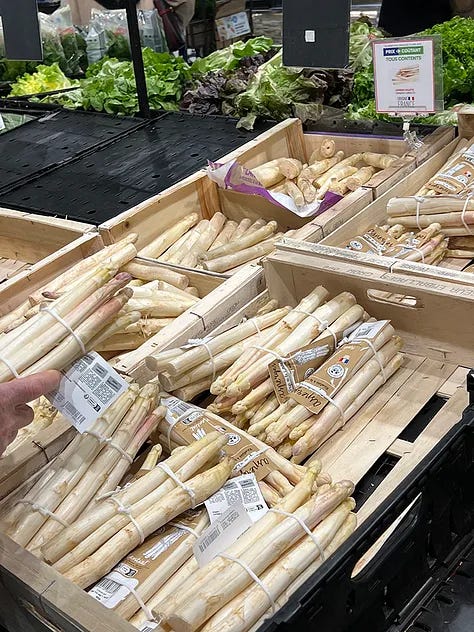
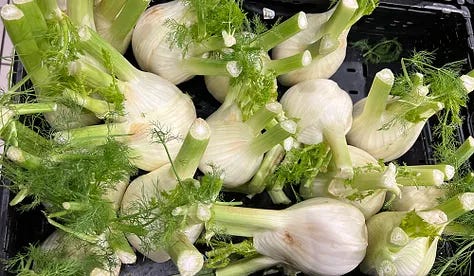
One Carrefour outside Chartres that I visited felt more like a gourmet IKEA than a traditional supermarket. Wide aisles, creative displays, and a sense of joie de vivre made it clear: this was not just about shopping. This was about living.
The Soul of a Society, on a Shelf
American grocery stores, by contrast, often prioritize branding, status, and convenience over quality, variety, and affordability. Organic sections feel performative, and pricing can feel predatory.
Food should connect us to place, tradition, and each other. And if a society can’t deliver that in something as basic as a grocery store, what does it say about how we value life itself?
So next time you travel—or even just cross to a different neighborhood—step into a local grocery store. Take in the smells, the colors, the prices, the people.
You might learn more about a culture in ten minutes than in an hour at a cultural exhibit.
And you might just be inspired to cook something beautiful.



